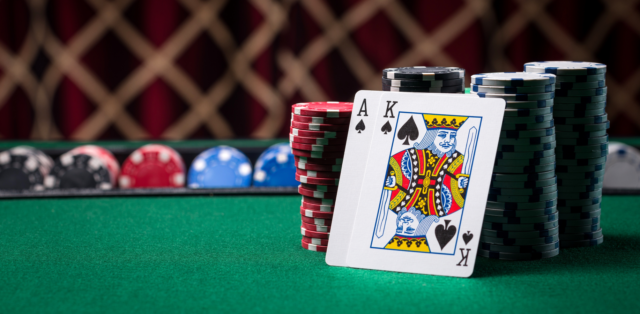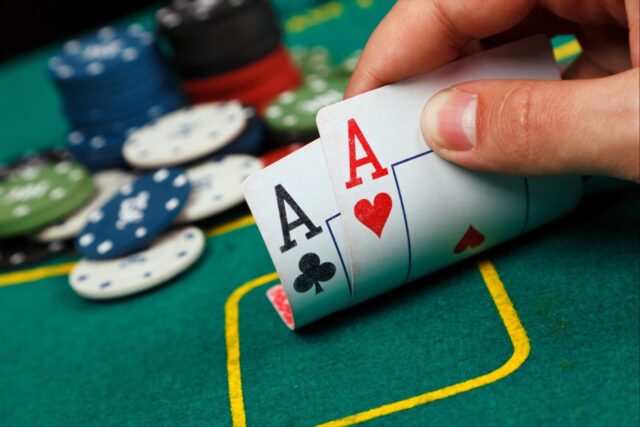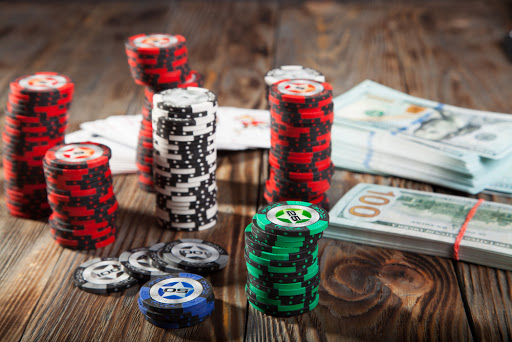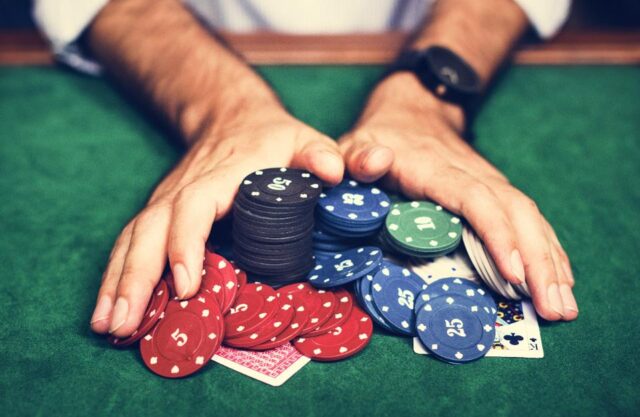
One of the most iconic gambling games of all time, poker truly is a game that anyone can get involved in, at almost every level. From the pros at WSOP to novice players at their local casino, poker is a truly inclusive game; one that you can get better at over time.
Still at the beginner stage? We’ve got six great tips to get you started off right. They’re good ones to learn from the start and carry into the big leagues as your game improves.
1Get to learn the rules

Just like learning a new sport, you need to know the rules of poker before you start to play. Take some time, whether online or in the library, reading up and watching videos on how the game actually works. This includes getting familiar with the different hands and how they rank, as well as gameplay itself.
Poker in itself isn’t all that complicated — and of course, you can always add more complex strategies and positioning as you go along. But getting the foundation right is always the most important part; learning the rules through and through will give you a good basis to work with, and maybe save you some embarrassment at the table.
Of course, reading up on the rules will help, but the best way to learn is through putting it into practice. Obviously you shouldn’t be betting with huge amounts when you’re new to the game, but play with a few friends for low stakes – this is likely to be far more effective than reading endless books/blogs on the subject.
2Know the vocabulary

Like all games, the game of poker has its own vocabulary — one that you should learn alongside the rules, so you know what the other players are talking about. According to 888 Poker, hand nicknames can play a huge role, so being familiar with them will also make you seem more confident; which is a good trait to have when you’re playing the game.
There’s also terms which are a necessity to get a grasp of, ‘Blinds’, for example, are a forced bet — mostly placed by the two players left of the dealer. ‘Check’ means to not bet, which you can only do if no other bets have not been made.
Fold is to forfeit your cards. Hole cards are the two cards that are dealt to each player but are also known as pocket cards. The pot is all the money that has been bet by all the players.
Of course, there’s much more vocabulary to get to know. Take some time to learn it before you start to play!
3Create a bankroll — and stick to it

Even the biggest players in the game have a bankroll they stick with. Your bankroll is essentially a budget — how much you’re willing to play with, and more importantly, how much you’re willing to lose.
Of course, no one wants to think about losing money. But the fun of poker comes from this risk, and it will happen to everyone at some point. Knowing how much you have in the bankroll allows you to play within your means and indicates when it’s time for you to stop. Having a solid understanding of how it works, and where you’re at, means you’ll be able to enjoy your poker playing to the fullest.
Whether you’re new to the game or an experienced player, try to be as sensible as possible. Be cautious up until the point where you’re convinced you to have a strong hand. Avoid trying to bluff too early, you’re likely to get found out!
Of course, that bankroll can change too — depending on your circumstances, or if you have a few big wins!
4Develop a strategy

Great poker players know the importance of strategy. If you’re serious about the game, you should develop your own, and keep adding to it as you improve and learn. You shouldn’t really be playing every hand, for example, as fun as it can be — only play the best ones! Be aware of your table position, try and guess what the other players have and don’t rely too much on bluffing.
There are many different factors when it comes to building a strategy, and of course inspiration and tips you can take from the top players. No matter what your strategy is like, it’s vital that you have one. It will help limit your losses, and ideally, lead to a bigger bankroll to play with!
And of course, you need to keep your strategy consistent. Don’t get trapped in the tilt; everyone experiences loss now and again, and abandoning your strategy is a massive mistake.
5Use table etiquette

Unless you’re playing online, poker is played around a table. As in any social situation, etiquette is something to keep in mind; even if you’re not a professional it’s best to play like one and respect the rules and mood of the table. The first etiquette tip is to pay attention — don’t talk too loudly, tell extensive stories or generally distract other players.
This is an annoying trait and can slow down gameplay, which of course no one wants! If you find yourself at the table with one of these players, don’t get drawn into any long-winded conversations, chances are they’re only chatting to distract you.
Another tip is to leave your cards in plain sight and on the table. This way, the dealer knows that you’re still playing the game, and reassures your players you aren’t cheating. You don’t want to be accused of taking part in any funny business; it’s bound to get you kicked off the table!
6Practice, practice, practice!
One of the best ways to get better as a newbie? The professionals will tell you to keep practicing! Whether it’s at an online or land-based casino, getting the hours in will only improve your game.
And hopefully, lead to some big wins in your future — who knows, you might see yourself playing against the biggest players one day.








